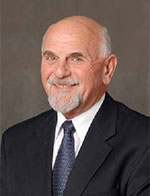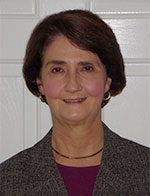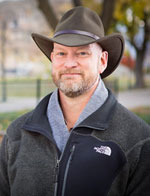Date: Thursday, September 13th – Friday, September 14th, 2012
Location:
UAB National Alumni Society House
1301 10th Avenue South Birmingham, AL 35294-4555
Parking: There is available parking at the Alumni House (Workshop Map), but in the event, additional parking is required, it will be made available in Lot 15D (Across from the Alys Stephens Center).
Organizers: Ceren Yarar, Andrew Brown, David Allison
Sponsors:
- Nutrition Obesity Research Center (NORC)
- School of Public Health (SOPH)
Overview
This workshop is designed to address aspects of grant writing and grant getting. Day One, Dr. Braveman will discuss a strategy for approaching the grant writing process that he has found successful with any granting agency. At the end of the day, a mock review panel will be held, demonstrating aspects of the grant review process, as well as the thought processes of grant reviewers when scoring a grant. Day Two, various funding sources. Tips and tricks for each funding mechanism will be discussed. Individual appointments will be available throughout both days with the experts as available to get answers to specific questions regarding grants you are writing, grants that are ready to submit, or ways to improve grants that have already been scored.
Agenda [Download Agenda (PDF)]
Watch Videos: Contact the NORC for Video Access
| Time | Speaker |
|---|---|
| Thursday, September 13th, 2012 | Moderator: Ceren Yarar, Ph.D. |
| 8:45 AM-9:00 AM | Welcome & Introduction David B. Allison, Ph.D. |
| 9:00 AM-12:00 PM | Presentation: Grant Writing Strategies Norman Braveman, Ph.D. |
| 12:00 PM-1:00 PM | Lunch & Discussion |
| 1:00 PM-3:00 PM | Presentation: Grant Writing Strategies, Part II Norman Braveman, Ph.D. |
| 3:00 PM-3:15 PM | Break |
| 3:15 PM-4:30 PM | Mock Review Panel grants will be supplied to be reviewed, consistent with NIH. Norman Braveman, Ph.D.; Carolyn Miles, Ph.D.; & UAB investigators TBD |
| 4:30 PM–5:00 PM | Q & A Ceren Yarar, Ph.D. - moderator |
| Friday, September 14th, 2012 | Moderator: Andrew Brown, Ph.D. |
| 8:45 AM-9:00 a.m | Welcome & Introduction David B. Allison, Ph.D. |
| 9:00 AM-10:00 AM | Presentation and Q & A: Individual Training Grants (NIH: K &F) Carolyn Miles, Ph.D. |
| 10:00 AM-11:00 AM | Presentation and Q & A: NSF Jim Powell, Ph.D. |
| 11:00 AM-12:00 PM | Presentation and Q & A: CDC Grants Lisle Hites, Ph.D. |
| 12:00 PM-3:00 PM | Additional Speaker Question & Answer: Individuals /groups can request 30 min meetings with experts for private sessions. Submit to Richard by August 30th the following: CV and/or grant, along with any specific questions, and several preferred times on either day. Registrants also need to rank the speakers they would like to meet with in case we are unable to accommodate the multiple requests. |
Speakers
Norman Braveman, Ph.D.
Braveman BioMed Consultants LLC
 Dr. Norman S. Braveman retired at the end of 2008 from the NIH after more than 28 years of service. Dr. Braveman received his B.A. and M.A. degrees from Miami University (Ohio) in Psychology and his Ph.D. from Washington State University in Psychobiology with a minor area of concentration in Quantitative Genetics. He joined the extramural scientific staff at the National Institutes of Health in 1980 after 10 years in academia as a teacher and researcher.
Dr. Norman S. Braveman retired at the end of 2008 from the NIH after more than 28 years of service. Dr. Braveman received his B.A. and M.A. degrees from Miami University (Ohio) in Psychology and his Ph.D. from Washington State University in Psychobiology with a minor area of concentration in Quantitative Genetics. He joined the extramural scientific staff at the National Institutes of Health in 1980 after 10 years in academia as a teacher and researcher.
Carolyn Miles, Ph.D.
 Dr. Carolyn Miles retired from the NIH at the end of 2010 after 28 years of government service. Dr. Miles received her Ph.D. from Virginia Tech in Human Nutrition and Foods. She has had a varied career in academic institutions and government agencies. After graduate school, she was an Instructor in Pediatrics at the Medical College of Virginia, Virginia Commonwealth University and the Nutrition Consultant to the Virginia State Inborn Errors of Metabolism Program. After moving to the Washington, DC area, she taught undergraduate and graduate courses in Nutrition at the University of Maryland.
Dr. Carolyn Miles retired from the NIH at the end of 2010 after 28 years of government service. Dr. Miles received her Ph.D. from Virginia Tech in Human Nutrition and Foods. She has had a varied career in academic institutions and government agencies. After graduate school, she was an Instructor in Pediatrics at the Medical College of Virginia, Virginia Commonwealth University and the Nutrition Consultant to the Virginia State Inborn Errors of Metabolism Program. After moving to the Washington, DC area, she taught undergraduate and graduate courses in Nutrition at the University of Maryland.
Dr. Miles started working at the National Institutes of Health as a Scientific Review Officer (SRO) in the Review Branch of the National Institute of Diabetes and Digestive and Kidney Diseases (NIDDK) and continued in this position for 5 years. She was the SRO for the C Committee which reviews career development grants. She also held the position of Program Director in the Division of Digestive Diseases and Nutrition of NIDDK. As a Program Director, she managed grants in clinical obesity and nutrition; served as the project scientist of the Longitudinal Assessment of Bariatric Surgery (LABS), a multi-site observational study of 2400 bariatric surgery patients; and directed the Nutrition Obesity Research Centers program.
James Powel, Ph.D.
Professor, Mathematics & Biology, Utah State University
 Professor James Powell graduated with a degree in Applied Mathematics from the University of Arizona in 1990 and has managed the Interdisciplinary and Industrial Math Program at Utah State University since 1997. On the strength of over fifty publications in applied mathematics, biology and ecology he earned a dual appointment as Professor of Mathematics and Biology in 2008 and is also an Associate of the Ecology Center. Dr. Powell has led field-based research programs in forest pests and swan flight dynamics pioneered efforts to use biology labs to teach mathematics. Over his 21 years at USU he has served as PI or co-PI on thirty grants, including ten NSF grants from seven different divisions. Professor Powell has reviewed over forty NSF proposals, served on several NSF review panels, and participated in numerous NSF workshops organized to design future funding initiatives.
Professor James Powell graduated with a degree in Applied Mathematics from the University of Arizona in 1990 and has managed the Interdisciplinary and Industrial Math Program at Utah State University since 1997. On the strength of over fifty publications in applied mathematics, biology and ecology he earned a dual appointment as Professor of Mathematics and Biology in 2008 and is also an Associate of the Ecology Center. Dr. Powell has led field-based research programs in forest pests and swan flight dynamics pioneered efforts to use biology labs to teach mathematics. Over his 21 years at USU he has served as PI or co-PI on thirty grants, including ten NSF grants from seven different divisions. Professor Powell has reviewed over forty NSF proposals, served on several NSF review panels, and participated in numerous NSF workshops organized to design future funding initiatives.
Lisle Hites, MS, MEd, Ph.D.
Assistant Professor, Health Care Organization and Policy
 Dr. Hites has over 10 year's experience designing and conducting programmatic and outcomes evaluations and training. For the past two years, he has been working with the Arizona Department of Health Services to direct evaluation services for the Bureau of Tobacco and Chronic Disease and is currently working with the Jefferson County Department of Health evaluating their Communities Putting Prevention to Work grants for Tobacco and Obesity reduction. He is currently representing the Association of Schools of Public Health (ASPH) and the CPHPs in CDC's Outcome Monitoring and Evaluation Branch's national workgroups to design public health preparedness outcomes measures. Current research interests include structural modeling of predictors of on the job injuries suffered by law enforcement, firefighters, and corrections officers, and understanding the relationship between situation awareness and decision making quality in non-routine emergency response situations. Past efforts included field studies of the Public Health response to hurricane Katrina and the utilization of scenario-based decision making to assess Public Health competency.
Dr. Hites has over 10 year's experience designing and conducting programmatic and outcomes evaluations and training. For the past two years, he has been working with the Arizona Department of Health Services to direct evaluation services for the Bureau of Tobacco and Chronic Disease and is currently working with the Jefferson County Department of Health evaluating their Communities Putting Prevention to Work grants for Tobacco and Obesity reduction. He is currently representing the Association of Schools of Public Health (ASPH) and the CPHPs in CDC's Outcome Monitoring and Evaluation Branch's national workgroups to design public health preparedness outcomes measures. Current research interests include structural modeling of predictors of on the job injuries suffered by law enforcement, firefighters, and corrections officers, and understanding the relationship between situation awareness and decision making quality in non-routine emergency response situations. Past efforts included field studies of the Public Health response to hurricane Katrina and the utilization of scenario-based decision making to assess Public Health competency.